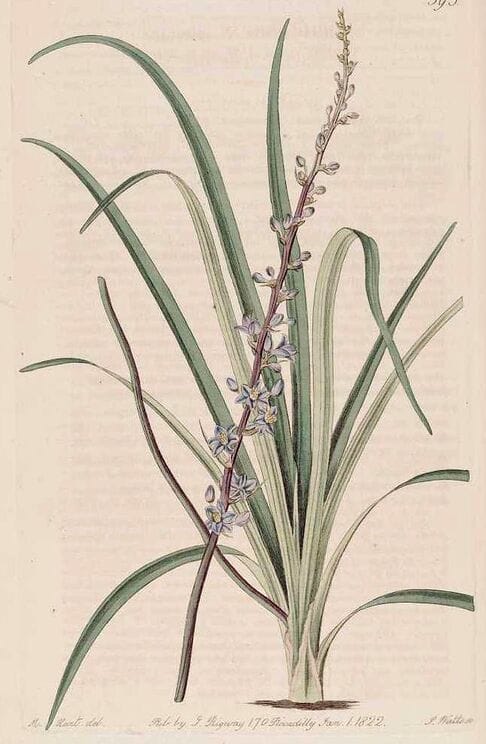Liriope, Shan Mai Dong 山麦冬
Shan Mai Dong (TCM) Liriope spicata
Liriope spicata(Edwards, S.T., Botanical Register (1815-1828))
 Liriope spicata
Liriope spicataCurstis’s Botanical Maagazine, Volume 88, 1862
Botanical name:
Liriope
- L. spicata
- L. spicata var. prolifera
- L. platyphylla (Kuo Ye Shan Mai Dong)
- L. muscari (Duan Ting Shan Mai Dong)
Parts used:
Root (Tuber)
Temperature & Taste:
Cool, moist. Sweet
Classification:
Uses:
1. Nourishes Lung Yin, Stops Cough:
-Cough with excess Phlegm
-Yin-deficient (dry) Cough, Tuberculosis
-Bleeding from Lung Heat (Hemoptysis, Nosebleeding)
2. Nourishes Stomach Yin, Promotes Fluids:
-Stomach Yin deficiency
-dry Mouth and Throat, depleted fluids
-Constipation from dryness
-Has been used for Cancer with Yin deficiency (Lung, Stomach, Bladder etc)
Dose:
Decoction: 6–15 grams
Powder: 1.5–4 grams
Substitute:
Ophiopogon Mai Men Dong (Liriope has been used as a substitute for Mai Men Dong)
Main Combinations:
1. Dry or Yin-deficient Cough, Liriope with Asparagus root, Licorice
2. Nosebleeding from Heat, Liriope, Mulberry bark (Sang Bai Pi), Rehmannia Sheng Di, Scutelllaria Huang Qin
3. Bladder Cancer, Liriope with Ginseng, Schisandra Wu Wei Zi, Astragalus Huang Qi, Oldenlandia Bai Hua She She Cao (based on Korean treatment: see Research below)
Major Formulas:
Cautions:
None noted
Use cautiously in Cold and Damp Stomach
Main Preparations used:
1. Clinical Experiences of Korean Medicine Treatment against Urinary Bladder Cancer in General Practice
